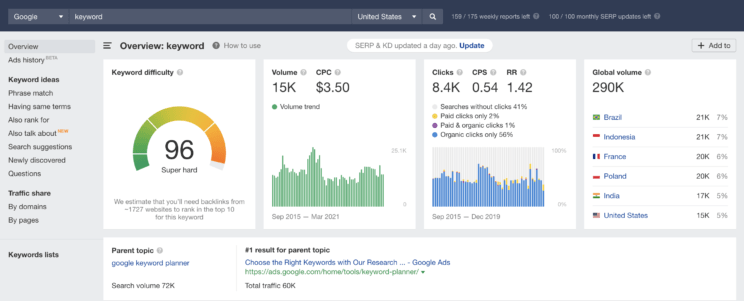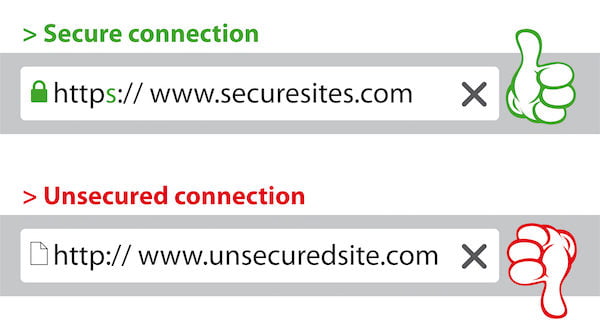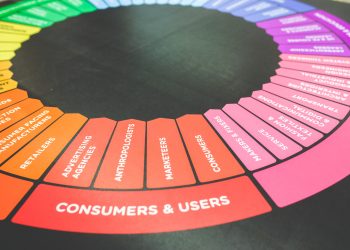There’s a lot of misinformation online about Google’s treatment of affiliate websites, and the most popular methods to grow organically can often seem contradictory to most people.
Because of this, we’ll be looking at the way Google treats affiliate sites, where the idea that Google hates them comes from, and what you can do to boost your affiliate site’s growth without being penalized by Google’s algorithm.
Does Google Hate Affiliate Sites?
Now, to answer this question, we have to look at it from Google’s perspective.
First, it’s important to note that Google doesn’t hate all affiliate websites; however, they do have quite a bit against some kinds of affiliate links. This is because Google’s number-one goal is customer value management — providing searchers with the best search results that answer all of the queries they have.
So, here are some things that should be avoided when making an affiliate website so Google doesn’t penalize you in their searches.
Having a Multi-Niche Site
Now, simply having a site dedicated to multiple niches can make Google treat you more poorly. This is because Google prioritizes niche sites, so when the algorithm looks at your site, it takes it a while to get to what you’re all about, and when it does it sees that a lot of your content isn’t relevant to a particular search result.
In order to make having a multi-niche site worthwhile, you’d need to amass a lot of link authority to avoid the downsides.
This means that although it’s possible to make a highly successful multi-niche website, it isn’t very likely if you’re just starting. However, if you really must make a multi-niche site, then I advise starting with one niche and branching out from there.
Not Paying Enough Attention to Keywords

Generally, Google favors content that panders to a set of keywords. This is so they have a much easier time indexing your content, and so the algorithm can better understand what your content is about. Google pays so much attention to this because indexing isn’t free. It costs Google money, bandwidth, and more.
In fact, if your site is extremely bad at targeting keywords, it’s possible for your content to not get indexed by Google at all. Although this is a little-known fact and happens quite rarely, it is possible, so pay attention!
Publishing Fluffed-Up Content
Fluffed-up or thin content is a piece of content with a total value to the user is slim or nil. This ranges from entirely duplicated content to pieces of content that are all fluff, no meat, or simply don’t have enough content on a single page to provide any useful information.
Usually, fluffed-up content starts getting published when an affiliate site starts making a decent number of sales and gets addicted to the feeling of numbers going up. This can often lead to them creating lesser-quality pages, pumping them chock-full of links, and bulking them up with fluff.
Google penalizes this because, again, it wants to show quality searches to the user, not show them fluffed-up pieces of content filled to the brim with links.
Offering a Bad UX
The UX (user experience) of your site is the most important part of it. If your site’s user experience is bad, then Google will penalize you heavily regardless of how well optimized the rest of it is.
You can check if you have a bad UX by looking at the following list and seeing how many apply to your site:
- Too many advertisements.
- Unintuitive to use on a phone.
- Annoying popups.
- Slow loading times.
- An appearance that confuses users.
Not Using HTTPS
If you’re looking to rank your website well, then it’ll need to use a safe connection. By doing this, you’ll let Google know that you’re a legit business and not a crook of some sort. You can see whether or not you’ve got Google’s trust by looking at the green padlock next to your domain name.

Using Black Hat SEO Tactics
Black hat SEO covers every action done with SEO in mind that contradicts Google’s webmaster guide.
This means things like keyword stuffing, injected links, spammed content through blog comments or similar, and spinning articles, will be frowned upon by Google’s algorithm.
Keep in mind that not only will Google penalize you for doing these techniques, but most of them also don’t even work anymore.
Other Causes
Now, this is not to say that Google is always right when penalizing affiliate sites. Some high-up figures at Google have expressed the opinion that affiliate sites are “just an unnecessary step in the sales funnel” or similar.
In fact, Google banned over 30,000 affiliate sites, and although most of them were violating at least one of the points above, some weren’t. There’s especially cause for concern in the travel industry, where webmasters are instructed to report any affiliate content, even if it provides good value to the reader.
Google has also harmed many affiliate sites by removing pages for being “doorway” pages, only to replace them with their own.
How Can You Grow Organically as an Affiliate Website?
Now, while the things above are an excellent guideline for what you shouldn’t do, in this section we’ll be considering what you can do to boost your rankings and view counts as an affiliate website.
Pay Attention to Your SEO and Link-Building
Much like any other online business, an affiliate website will want to keep a close eye on SEO and link-building efforts.
A lot of site owners will put most of their focus on those keywords that have a lot of purchasing intent, and while this isn’t necessarily wrong, it is quite a risky strategy. Any site needs to have some keyword diversity, as putting too much reliance on a couple of keywords will get you penalized by Google as well. Because of this, you should be using varying keywords and anchor texts.
Next, keep in mind that if you’re buying links from private blog networks, you should carefully consider their reputation, as buying from the wrong ones could be bad for your site.
If you’re looking for long-term, organic growth, you should pay more attention simply to keeping up with standard practices and natural link-building than tricking Google. This is because not only is tricking Google hard and often not worth the effort, but also severe penalties, if you fail, can often be backbreaking for a site.
Optimize Your UX
Optimizing your user experience is crucial for increasing your ranking and growth. Having an unoptimized site leads to very high bounce rates, while an optimized site can help you attract more users and have them stick around for longer.
The most important factor you should optimize for is speed. There are a lot of ways to do this, but the easiest ones are through browser caching and using image compression through Shush.it. On WordPress, you should take advantage of the abundance of plugins made to do this for you.
Make Quality Content
For most affiliate websites, their content is the biggest cause of organic traffic and sales. This makes your content the second-most important part of your website, after the UX.
- Think of a content development strategy: Quality content isn’t cheap; you’ll need to consider if you’ll have an agency create your content, have freelancers do it, or maybe rely on an in-house team ready to take on this task.
- Make it count: Making a lot of low-quality content is much less valuable than creating fewer pieces of high-quality, effective content. As content will play a massive role in every facet of your affiliate website’s success, you’ll need to make sure that it’s quality content that engages with your visitors.
- Diversify: Having diversified keywords and sources of traffic is great for both your search ranking and your rate of growth.
Now, although most affiliate websites choose to create a website dedicated to product reviews, a lot of affiliate websites will opt for a different approach. The most important thing to keep in mind, regardless of what kind of affiliate website you make, is to keep your content high-quality.
Closing Words
There is some merit to the statement that Google hates affiliate websites. Although they have a variety of fair standards that hurt low-effort affiliate websites, some of their treatments have been harmful to the industry as a whole, and have hurt some genuinely helpful brands.
Despite this, as long as you don’t go against the guidelines above, your affiliate website is unlikely to get penalized by Google. The most important things to keep in mind are that you should have a single-niche site with a quality user experience, and post excellent content without taking advantage of black hat techniques.
If you find yourself getting frustrated and asking, “Are we there yet?” take a breather and remember that Rome wasn’t built in a day. Growing organically can be sped up by following the do’s and don’ts in the article above, but the process cannot be skipped entirely.
Good luck!












